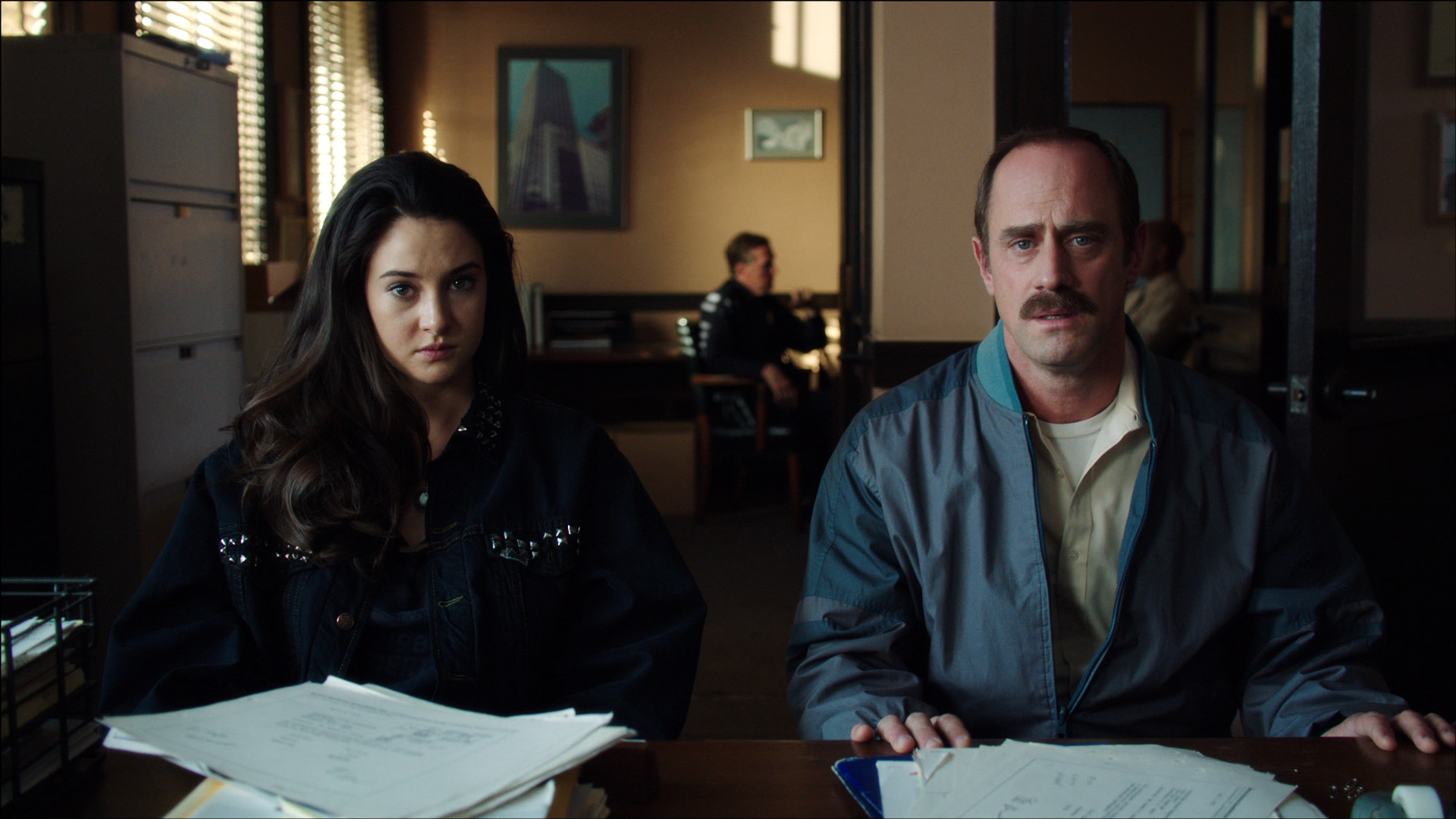Faster than you can say Young Adult novel, director Gregg Araki dives into a doomy ’80s wallow, the soundtrack throbbing with The Cure and This Mortal Coil. Adapting a book by Laura Kasischke, superficially a missing mommy mystery, he’s mainly concerned with the hormonal upheaval of 17-year-old Kat (Shailene Woodley of Divergent and The Descendants), who wears her Kate Bush T-shirts with mopey pride. Kat narrates her tale to us via therapy sessions (cue Angela Bassett, notebook in hand) and a few visits with the cop on the case (the bemulleted Thomas Jane), a more virile alternative to her dim-bulb boyfriend (who’s curiously averse to sex with her… hmmm).
Araki made his bones as a purveyor of New Queer Cinema (The Living End, The Doom Generation); he’s not a crime specialist, so it’s the repression and melodrama in Kat’s family that he savors. A drunk and sexually frustrated housewife before she disappears, Eve (Penny Dreadful’s Eva Green) despises her pea-green crockpots and Swanson-TV-dinner suburbia, but reserves special venom for her limp husband. His mustache drooping with defeat and humiliation, Brock (Christopher Meloni) is reduced to spanking off in the basement rec room. (Here special note must be made of the splendidly sad wood-panel and throw-rug decor, hand tools carefully aligned on a peg board, the set perfectly dressed for despair—or a Terry Richardson photo shoot.) Neither parent has any time or interest in Kat, though Eve does make a play for her boyfriend (who again seems curiously uninterested… hmmm).
Araki’s high-key lighting and saturated colors nod to Douglas Sirk (and Todd Haynes), and he even flashes back to Kat’s ’70s girlhood, giving Green a chance to rock some excellent polyester pantsuits in an eye-searing shade of fuchsia. Unlike most YA novels these days, where the fate of the world hinges on teen angst, no one here seems too terribly concerned about Eve’s fate. Eventually Kat goes off to college, where she majors in Depeche Mode. Three years later, mother almost forgotten, the mystery is solved—or told, really—as if Araki had forgotten about that plot driver, too. Mainly he understands in White Bird that for teenagers, no pleasure compares to hating your parents (not even hot, hairy detective sex).
Oh, what about the blizzard? Kat has snowy dreams, you see, regarding her lost mother (who was emotionally frozen!! Get it?!?). Gabourey Sidibe does supply a little warmth as one of Kat’s besties, and the movie may send you looking for those dusty old Siouxsie Sioux albums in the attic. (If nothing else, Araki will count himself well contented with that.) And Twin Peaks fans take heart: Sheryl Lee makes a late-film appearance, so she’s ready for season three. Opens Fri., Oct. 24 at Varsity. Rated R. 91 minutes.
bmiller@seattleweekly.com








